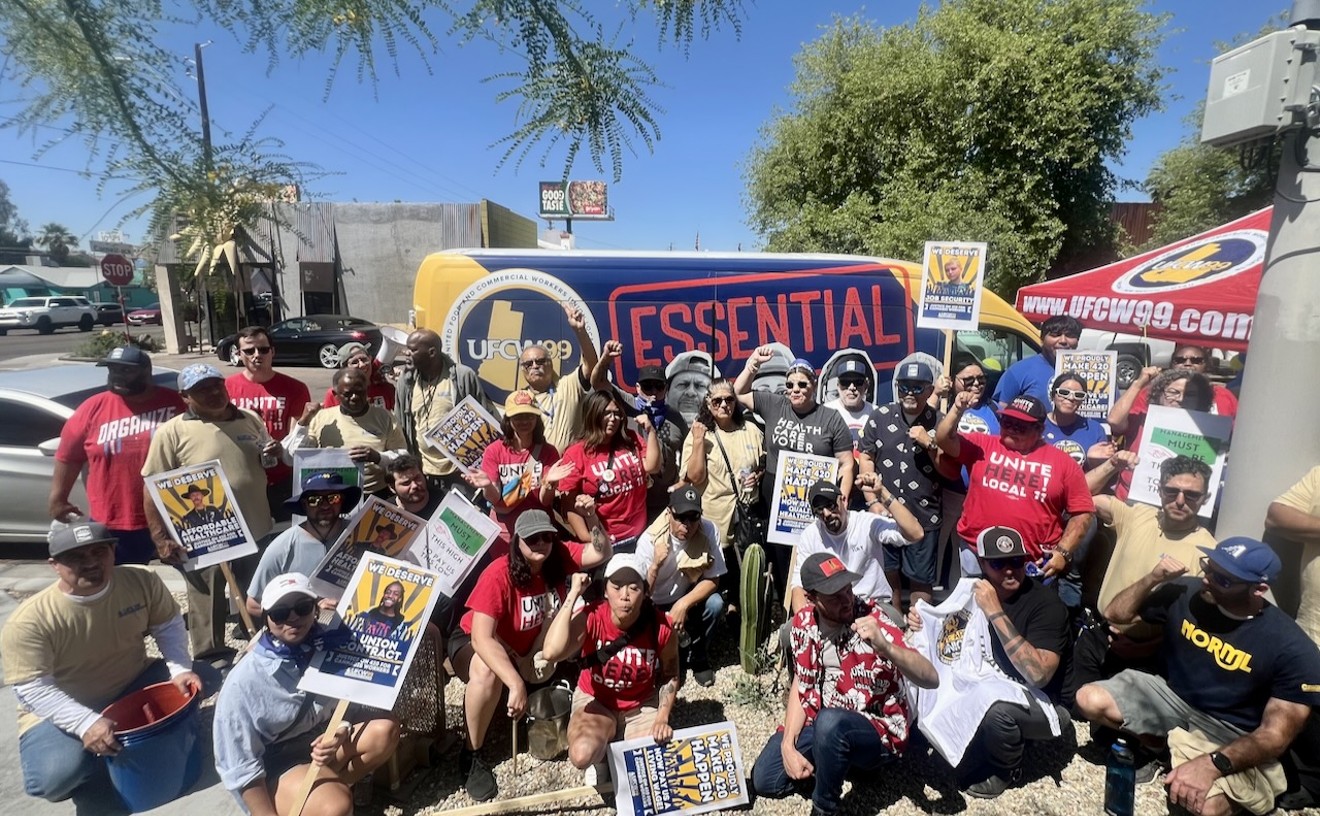Allow me to explain myself.
Part of the allure is the wagering, men and women shouting odds and waving cash. Part of it's the culture, bearing witness to the bizarre blend of Arizonans drawn to watch roosters do battle. Part of it's the breeding, the matching of bloodline against bloodline, each refined over centuries in a quest for the unbeatable fighting fowl, when no such beast exists. Every breed has genetically refined strengths and weaknesses, techniques and moves, so that a cockfight tournament becomes a poultry version of Mortal Kombat.
That's right. I also play violent video games.
When I play Mortal Kombat, I usually pick the character Sub Zero. When I bet on cockfights, I usually bet on a Johnny Jumper, unless we're talking a Filipino long-knife fight.
I don't put money on long-knife fights. Can't even stomach them, actually. Too many flying chicken parts. Too much luck involved instead of skill.
If we're talking gaffes or Mexican short knives, though, I go with a Jumper whenever I can. They're ferocious birds that burst airborne in a flapping eruption, then furiously attack with both feet forward. Spanish Fighters are a good bet as well; instinctive technicians that stick and move.
A divergence into history: About 4,000 years ago, early Asian civilizations domesticated a species of jungle fowl whose descendants we now call chickens. It was discovered that male chickens would viciously attack one another on sight. This proved amusing. Cockfighting began. Roman legions brought back fighting birds to Europe. Spanish conquistadors introduced cockfighting to Mexico and the future Southwestern United States. Abe Lincoln was a cockfight judge before he was a president. Cockfighting is the national sport of the Philippines, where cockfights are televised, same as in Puerto Rico.
My point is, the thrill of watching roosters fight has crossed many ethnic lines over the millennia, which is why the crowd around the pit at a major Valley cockfight is so delightfully diverse: Good ol' boys whoop it up with Mexicans, Filipinos and Puerto Ricans, with a sprinkling of Thais and Vietnamese, all getting along, their children playing, everyone eating one another's home cooking, the men swilling beer and slapping backs.
What brings these people together?
Violence. Bird-on-bird violence.
I don't see the crime in this. All the same, cockfighting in Arizona is illegal, and I'm a criminal.
In November 1998, Arizona voters outlawed cockfighting by a 2-1 margin in passing Proposition 201, which made holding a cockfight or breeding roosters with the intent to fight them a Class 5 felony, punishable by up to two years in prison and a fine of up to $150,000. The new law also made it a misdemeanor to attend a cockfight (the betting that goes on was already illegal).
The reasoning behind this legislation, as put forth by the well-funded animal-rights activists who put Proposition 201 on the ballot and spent $600,000 to ensure that it passed, is that cockfighting is so depraved, so despicably cruel, that it should be illegal.
Fine. Let's extend that logic to the next checkpoint on Arizona's cruelty-free path of righteousness: the outright condemnation of anyone who eats chicken.
Consider: The average fighting rooster has two years of the good life -- open air, real food, room to roam -- before it goes into battle. Most die in the pit, losing consciousness to blood loss as a triumphant foe pecks its head off in a rat-a-tat coup de grâce. Those that survive enough fights to convince breeders of their mettle are retired to stud service, and live out their natural life span of eight to 12 years.
Now compare: The average factory-farmed chicken lives slightly more than a month, and it's a thoroughly miserable existence. First, its beak is amputated or soldered shut to keep it from pecking the chickens it's crammed between, motionless, in a gargantuan fattening pen. It's fed through a tube and left to wallow in its own excrement until, finally, the pitiable bird is lashed to a wire by its feet to hang upside down and helpless while its throat is slit.
The National Broiler Council estimates Arizonans consume nine million factory-slaughtered chickens a year.
Where's the clamor to stop this holocaust? Where are voices who spoke so passionately of the need to criminalize cockfighting and "remove a bad element from our society"?
Probably muffled by a mouthful of chicken cordon bleu.
There was more than a whiff of class warfare around Arizona's crusaders against cockfighting. During the Proposition 201 campaign, I attended a fund raiser held by each side on the same Saturday night, about a month before the vote.
The cockfighters, whose campaign fund was then less than $1,000, threw an out-of-season tournament where carne asada tacos were sold for the inflated price of five bucks a plate.
Citizens Against Cockfighting hosted "The Awakening of Arizona," a black-tie fund raiser at the Ritz-Carlton, where wine was sipped and art bid upon by Awakeners in evening wear, whose campaign literature described cockfighting as "a perversion of the natural dominance-submission rituals of these magnificent birds."
About three weeks ago, on March 27, Maricopa County sheriff's deputies conducted the first major roundup of Valley cockfighting perverts since Proposition 201 became a law. They raided a backyard cockfight at a private residence in west Phoenix, where 50 suspects, most of Mexican descent, were arrested and charged with attending a cockfight.
The owner of the home, Victor Espinosa, was also charged with felonious hosting of a cockfight.
Other than this recent bust, the only tangible achievement of Arizona's anti-cockfighting law has been the closure of the state's 10 established cockfighting arenas, which had scoreboards, bleachers and concession stands. This hasn't quelled the big cockfighting action, though, only shifted it a few hundred miles east.
Cockfighting is legal in New Mexico, and Arizona breeders undeterred by the loose "raising with intent to fight" wording of the law against their sport now truck their birds to New Mexico for multi-day tournaments, just as cockfighters from Utah and California used to come to Arizona.
Smaller cockfighting events in the Valley, Tucson and in rural Arizona maintained a low profile before they were against the law, and continue the tradition now. These sporadic, single-night, word-of-mouth events are held in the Valley in temporary pits secreted in gravel quarries and on private ranch land.
So far, the only busts have been in Espinosa's west Phoenix neighborhood, which has more pressing crime problems than a bunch of guys getting together to drink beer and fight birds.
Espinosa is the second Valley resident to be charged with a felony for cockfighting. The first was Catraino Perez, who was arrested last August after a grand jury indicted him for hosting a cockfight Phoenix police reported breaking up three months earlier, eight blocks from Espinosa's place on Alta Vista Road.
Perez, a drywaller from Mexico, was assigned a public defender who immediately challenged the constitutionality of the anti-cockfighting law. Prosecutors offered to let Perez plead guilty to "attempted cockfighting," a less serious crime, but still a felony. Perez refused, then accepted a deal where he pleaded to the misdemeanor charge of attending a cockfight and was fined $200.
Espinosa should hope for similar treatment, and an indication that county prosecutors recognize the law against cockfighting for what it is: chicken shit.
Contact David Holthouse at his online address: [email protected]










